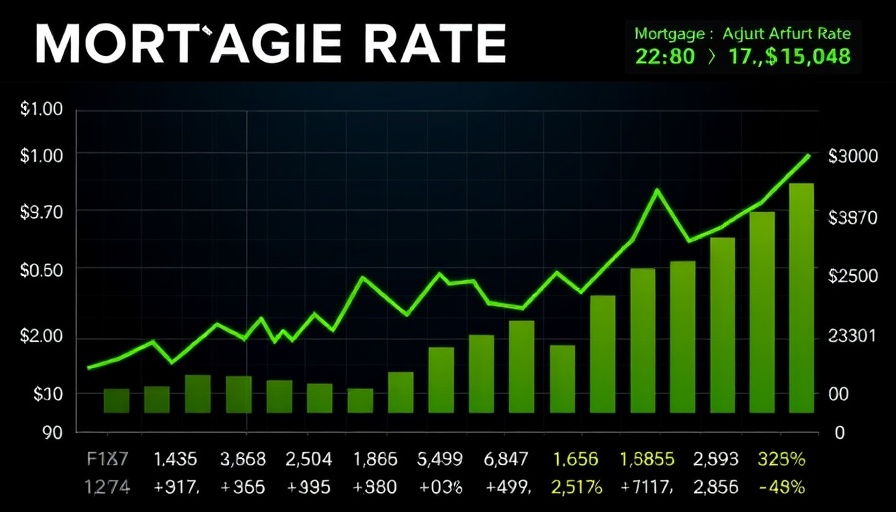
Understanding Mortgage Rate Trends
As we take a closer look at the mortgage market, it becomes evident that mortgage rates, which recently ended the week at an average fixed rate of 6.92%, have various factors influencing their fluctuations. This slight increase from last week is noteworthy considering it peaked at 6.99% earlier in the week. Such movements in rates have significant implications for potential homebuyers and investors alike.
The Bond Market's Role in Rate Changes
The bond market is a critical determinant of mortgage rates. When bond prices decline, yields rise, which often leads to increased mortgage rates. The latest week's data indicates a marginal softening in bond markets and a complex interplay between real-time bond pricing and lenders' rate decisions. On some days, lenders did not adjust their mortgage rates as quickly as bond prices changed, offering a lesson in the nuances of market timing.
Impacts on Homebuyers and Investors
For homebuyers contemplating a mortgage, understanding these fluctuations can make a substantial difference. With rates hovering near 7%, buyers need to evaluate not only their financial positions but also the timing of their purchases. Investors must also recognize how these adjustments impact investment returns on real estate versus other asset classes.
Historical Context of Mortgage Rates
Historically, mortgage rates have shown considerable variability influenced by economic conditions, inflation rates, and Federal Reserve policies. Comparing current rates to historical averages reveals that while 6.92% seems high relative to the past few years, it is still relatively low when viewed within a long-term perspective. Understanding these historical fluctuations can provide invaluable context for today's market.
The Future of Mortgage Rates: Predictions and Insights
Looking ahead, predictions suggest that mortgage rates may stabilize as inflationary pressures ease, and economic growth continues. Many analysts speculate a potential decline in rates later in the year if economic conditions allow for it. However, external shocks can quickly alter these forecasts, emphasizing the need for both buyers and sellers to stay informed.
Counterarguments: Reasons to Be Cautious
While some financial analysts remain optimistic about a decrease in mortgage rates, others caution against complacency. Geopolitical tensions, inflationary concerns, or unforeseen economic downturns can quickly alter the landscape. Therefore, stakeholders in the mortgage market should adopt a balanced perspective, preparing for both optimistic and pessimistic scenarios.
Actionable Insights for Potential Borrowers
In light of recent trends, potential borrowers should take proactive steps. They can engage financial advisors, consider locking in rates when they are favorable, and understand their eligibility for different mortgage programs. Gain knowledge about different loan products that might suit their financial situations best, thereby positioning themselves for optimal decision-making.
Conclusion: Stay Ahead in a Changing Market
In the ever-evolving mortgage market, remaining well-informed is crucial for anyone looking to navigate home buying or investing in property. Keeping abreast of rate changes and economic indicators can empower better financial decisions. Don't navigate this complex landscape alone—consider staying updated by engaging with reliable mortgage news sources.
 Add Row
Add Row  Add
Add 




 Add Row
Add Row  Add
Add 








Write A Comment